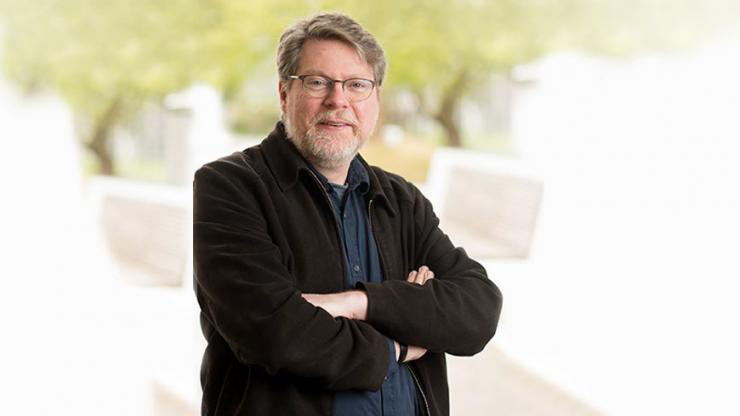

By Eric Szeto
Professor Alan Richardson knew that as soon as he had gotten fan mail for an essay he’d written for a book titled Bullshit and Philosophy that he had reached the status of pop culture philosopher icon.
“These days it’s one of the hats I wear,” jokingly says Professor Alan Richardson, who teaches in the Department of Philosophy.
“One thing that’s true is that when I write essays in books with titles such as The Cambridge Companion to Logical Empiricism, that paper is read by ten people. The editors tell me that the Monty Python volume has sold 10,000 copies,” he says of his essay in the book, Monty Python and Philosophy (Open Court: 2006).
Richardson can usually be seen trying to impart to his students everything he knows about philosophy from the philosophy of Immanuel Kant to the philosophy of science.
Helping build the next generation of philosophers, he says, is a gratifying experience. “A lot of people are intimidated by philosophy,” Richardson explains. “You have to have the intestinal fortitude to say, I think I’ll major in that.”
He helps his students make sense of the text by making it intellectually accessible, like he does with the philosophy of Monty Python. Because a lot of philosophy, he believes, is an interpretation of what philosophers have said.
Richardson says his teaching style is directly linked to what’s worked for him as a student. The professors that made the most impact on him were the “people who made it make sense for me. People who worked very hard in their courses, from the very beginning to graduate seminars, trying to give you stories that you could use to interpret a text, and you could listen to and decide whether you wanted to accept those stories or not.”
And for his efforts, he was awarded the UBC Killam Teaching Prize in 2001. Richardson, who’s been teaching at UBC since 1994, says that if it wasn’t for his time teaching with Stephen Straker, a professor who taught philosophy at UBC for more than 30 years, he doesn’t think that would have been honoured with the prize. “I view the teaching award as the fortuitous outcome of teaching with Stephen Straker, whose award it properly should have been,” he says. Straker received the prize in 2002, the year he retired.
Richardson says he has also been fortunate because UBC always has a great crop of students. He says the ideal teaching environment is smaller classes, where there is greater opportunity for dialogue.
Because it’s a good place to bullshit?
“I do think it’s actually a serious topic,” Richardson says of Harry Frankfurt’s original essay on bullshit. “[Frankfurt] wants to understand the difference between bullshit and lying. He thinks bullshit is worse because liars have to respect the truth. They know the value of truth; they have to respect truth to subvert it. Bullshit is speech unconcerned with truth; taken seriously, it devalues truth itself.
